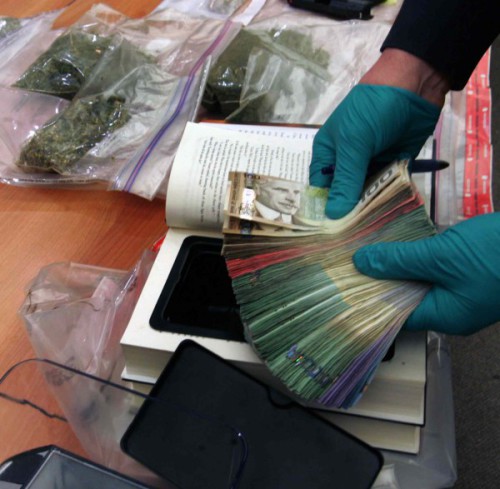In order to put criminals off of the idea of committing crimes, there is a need to ensure that the potential punishments are of a serious enough nature that the benefit is not worth the risk involved. Anyone who decides to commit an illegal act has to weigh up the pros and cons of their actions and whether they will be able to deal with the outcome of getting caught.
Not everyone thinks that they will be caught, and some people think that the likelihood of being captured stands at a different level for some crimes, but no matter the crime, there is a chance of being captured. Also, if the crime is a financial one, there is a greater chance of losing out on the financial benefits of the crime. It used to be that criminals would be happy to undertake a major financial crime because even if they were caught and sentenced to prison, if they could hide their money well, they would be able to enjoy it a later date. A large number of criminals would consider this to be an occupational hazard but a hazard that was worth taking.
Money laundering is a serious crime
With the introduction of the Proceeds of Crime Act, POCA, and the additional chance to hit criminals, there needs to be a further level of consideration undertaken by professionals. It may be that the order only accounts for some of their ill-gotten income, which means that there is a risk worth taking for some criminals, but it is definitely something that individuals need to weigh up and think about.
An example of this can be found in the case of Christopher Varney, someone who was jailed for drug dealing and money laundering offences. Varney was convicted in 2014 after being arrested in October of 2013. Police felt that his car smelled strongly of cannabis and after undertaking a search of the vehicle, two bags of cannabis were uncovered. There was also a bag containing £30,000 which was found under the bonnet.
This led to a warrant being requested and then executed on a horse lorry that Varney had at the Daly Meadows campsite in Wooton Underwood. Police found a range of drugs at this location including ketamine, cocaine, cannabis resin and skunk cannabis. There was also drug paraphernalia found and a further £12,000 in cash, all of which were seized by officers.
The trial took place at Aylesbury Crown Court and Varney was convicted of five counts of drug dealing and money laundering, being sentenced to nine months in prison in December of 2014. Varney and his representatives argued that the money was his after a successful period of gambling but this defence was rejected by the jury.
The POCA order can increase the punishment
In May of 2015, the follow-up hearing relating to the Proceeds of Crime presented Varney with a choice to make. He was informed that he had to pay £77,000 with respect to his proceeds of crime or he would be sentenced to two further years in prison. Some people will argue whether it is correct that the additional sentence should be longer than the initial sentence, whereas other people will say that this is exactly the sort of punishment that should be handed out for financial cases, where it is clear that someone has earned an income that cannot be legitimately traced.
A statement released by Phillip Croxson, the Thames Valley Police financial investigator revealed some of the things that Mr Varney had spent his money on. Croxson said; “The Confiscation Order represents a very substantial financial penalty. Mr Varney had owned and used a considerable number of different vehicles, and he had used alias names to conceal some of his assets. Enquiries revealed that he owned a narrowboat, since sold, and that he owned a share of an apartment in Spain. The Confiscation Order included the cash seized on two separate occasions.”
The double punishment for certain crimes is changing the way that a lot of people work, and it emphasises the need for specialist support and representation. There is no need to have the same solicitor representing a client on both cases, but it can be of benefit and could make for a robust case. This is where finding the most experienced legal team who can provide specialist money laundering and then POCA defences will become a lot more relevant as time goes by.
Andrew Reilly is a freelance writer with a focus on news stories and consumer interest articles. He has been writing professionally for 9 years but has been writing for as long as he can care to remember. When Andrew isn’t sat behind a laptop or researching a story, he will be found watching a gig or a game of football
